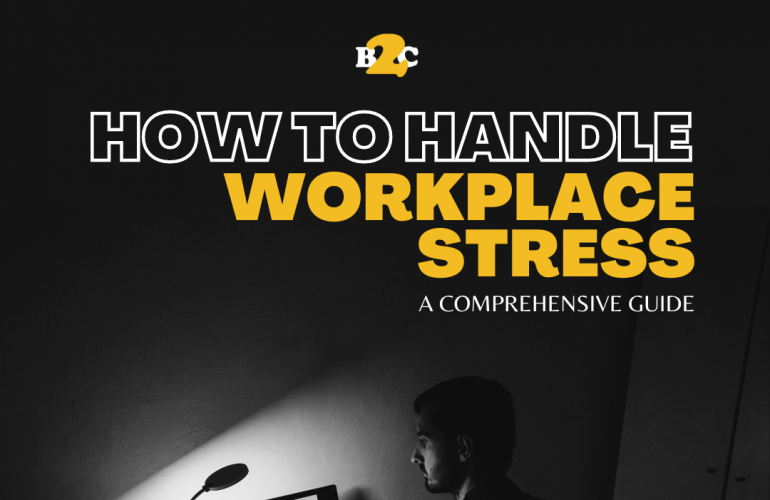How To Handle Workplace Stress?
On 09 Jul 2024
Workplace stress is a common issue that affects employees across various industries and professions.
The fast-paced work environment, tight deadlines, and increasing demands can contribute to stress, leading to decreased productivity, mental health issues, and burnout.
However, with effective strategies and a proactive approach, you can manage and reduce workplace stress. Here’s a comprehensive guide on how to handle workplace stress:
1. Identify the Sources of Stress

The first step in managing workplace stress is identifying its sources. Common stressors include:
- Workload: Excessive or unrealistic workloads.
- Role Ambiguity: Unclear job expectations or responsibilities.
- Interpersonal Relationships: Conflicts with colleagues or supervisors.
- Work-life Balance: Difficulty balancing work and personal life.
- Job Security: Concerns about job stability or career advancement.
2. Develop Healthy Work Habits

Creating healthy work habits can significantly reduce stress levels. Consider the following practices:
- Prioritize Tasks: Use tools like to-do lists or project management software to prioritize and organize tasks.
- Take Breaks: Regular short breaks can rejuvenate your mind and improve focus.
- Set Boundaries: Establish clear boundaries between work and personal time. Avoid checking work emails or taking work calls outside of office hours.
3. Improve Time Management Skills

Effective time management can alleviate stress by helping you stay organized and meet deadlines. Here are some tips:
- Plan Ahead: Start your day by planning tasks and setting realistic goals.
- Delegate: Don’t hesitate to delegate tasks to colleagues if possible.
- Avoid Procrastination: Break tasks into smaller, manageable parts to avoid feeling overwhelmed.
4. Foster a Supportive Work Environment

A positive and supportive work environment can significantly reduce stress. Try the following:
- Seek Support: Talk to colleagues or supervisors about your stress. They might offer solutions or support.
- Build Relationships: Develop strong relationships with colleagues to create a supportive network.
- Participate in Team Activities: Engage in team-building activities to strengthen bonds and create a positive atmosphere.
5. Practice Relaxation Techniques

Incorporating relaxation techniques into your daily routine can help manage stress. Consider these methods:
- Mindfulness and Meditation: Practicing mindfulness or meditation can calm your mind and reduce stress.
- Deep Breathing Exercises: Simple breathing exercises can help you relax and regain focus.
- Physical Activity: Regular exercise, even a short walk, can reduce stress and improve overall well-being.
6. Seek Professional Help

If workplace stress becomes unmanageable, seeking professional help is crucial. Consider the following options:
- Counseling or Therapy: Professional counselors or therapists can provide strategies and support to manage stress.
- Employee Assistance Programs (EAPs): Many organizations offer EAPs that provide confidential counseling and support services.
- Stress Management Workshops: Participate in workshops or seminars focused on stress management techniques.
7. Cultivate a Positive Mindset

A positive mindset can help you cope with stress more effectively. Practice the following:
- Gratitude: Focus on positive aspects of your job and express gratitude for them.
- Self-Compassion: Be kind to yourself and avoid self-criticism.
- Stay Optimistic: Maintain a hopeful and optimistic outlook, even during challenging times.
8. Maintain a Healthy Lifestyle

A healthy lifestyle can enhance your ability to manage stress. Consider these habits:
- Balanced Diet: Eat a nutritious diet to fuel your body and mind.
- Adequate Sleep: Ensure you get enough sleep to recharge and recover.
- Regular Exercise: Engage in regular physical activity to boost your mood and energy levels.
Handling workplace stress requires a multifaceted approach involving personal habits, professional support, and a positive work environment.
By identifying stressors, developing healthy work habits, practicing relaxation techniques, and seeking support when needed, you can effectively manage and reduce workplace stress, leading to improved well-being and productivity.
Remember, it’s essential to prioritize your mental health and take proactive steps to create a balanced and fulfilling work life.






